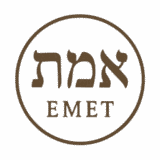Straining the Gnat, Swallowing the Camel: Seeing with God’s Eyes
When Jesus said, “You blind guides, who strain out a gnat and swallow a camel” (Matthew 23:24), He gave one of the most striking pictures of hypocrisy ever spoken. On the surface, it is almost humorous. The Pharisees, in their rigid attention to detail, would carefully strain their wine to avoid accidentally swallowing a tiny gnat, which was considered unclean under the law of Moses. Yet Jesus says that, in doing so, they were swallowing something far bigger—like a camel, the largest of the unclean animals. The contrast is absurd and intentional. It paints a vivid picture of misplaced priorities, of people who get lost in the smallest details while ignoring the massive sins in their own hearts.
But when we take this verse into the Hebrew, the depth becomes even more profound. The Hebrew translation of this verse reads: “מדריכים עיוורים, המסננים את היתוש ובולעים את הגמל” — “Blind guides, who strain out the gnat and swallow the camel.” Each Hebrew word, each letter, is full of meaning.
The first word, Madrikhim (guides), comes from the root derekh, meaning “the way” or “the path.” Guides are supposed to show the path of life. But Jesus calls them “blind guides,” Ivrim. Strikingly, this word for “blind” begins with the letter Ayin, which literally means “eye.” The irony is sharp: their eyes exist but cannot see. The very letter that should symbolize vision and perception begins a word that instead speaks of blindness. These leaders, who had the Torah memorized and the traditions mastered, could not see the Messiah standing before them. Their spiritual sight had been darkened by pride, arrogance, and self-reliance.
Next, Jesus says they “strain out” (ha-mesannenim), a word rooted in the Hebrew for filtering or sieving. The letters themselves reveal much. He speaks of divine revelation, Samekh of support or what one leans upon, and Nun of life and growth. To strain or filter carefully can be a good thing when guided by revelation, but in this case, the Pharisees placed their support in human rules rather than God. They filtered out what was small and insignificant while missing what God considered weighty and eternal.

Then comes the gnat, ha-yatush. The letters of this word also reveal spiritual irony. He again speaks of revelation, while Yod represents something small yet powerful, the spark of God’s hand. Tav speaks of covenant, Vav of connection, and Shin of teeth and destruction. The gnat represents something tiny, something barely worth noticing. Yet in their obsession, the Pharisees magnified it, turning something small into a matter of life and death. And the word ends with Shin, a letter of destruction, showing that obsession with little things can ultimately corrupt the soul.
In contrast, Jesus says they “swallow” (u-voleʿim). This word comes from balaʿ, meaning to engulf or consume. It contains the letters Bet (house), Lamed (authority), and Ayin (eye). To swallow is to bring something into your house, into your very being. The Pharisees, while rejecting gnats, were swallowing whole camels.
The camel, ha-gamal, carries even deeper meaning. Its root can mean to recompense, to ripen, or to carry. The letters themselves—He (revelation), Gimel (camel, lifting up, reward), Mem (waters, chaos), and Lamed (staff, authority)—paint the picture of a burden carried through chaos under authority. The camel is a beast of burden, able to carry much, yet unclean. Spiritually, it represents hypocrisy, pride, greed, and the heavy weight of sin. These blind leaders, while appearing holy, were loading themselves and others with burdens they could not bear, consuming the very thing that God despised.
When we step back, the lesson is piercing. Jesus was not only speaking to Pharisees two thousand years ago but to us today. How often do we find ourselves fixating on small, external things while ignoring the great issues of the heart? We may judge others for how they dress, what music they listen to, or whether they follow our exact church traditions, while at the same time ignoring anger, greed, lust, bitterness, or pride within ourselves. Like the Pharisees, we may strain the gnat—spotting every flaw in others—while swallowing the camel of hypocrisy.

The letters themselves warn us of this danger. The Ayin of blindness shows us that having eyes is not enough; we must have God’s vision. The Yod in the gnat reminds us that the small things can be important if they connect us to God’s covenant, but when magnified without love, they lead to destruction. The Gimel of the camel shows how pride and heavy burdens corrupt us when we exalt ourselves above others. Each letter, each word, testifies to the seriousness of spiritual blindness.
But there is also hope in this teaching. The presence of the word et—the Aleph and Tav, which appear twice in this verse—reminds us that God Himself, the beginning and the end, is present even in the midst of hypocrisy. Jesus, the Aleph and the Tav, the Alpha and the Omega, was standing before them, offering sight to the blind and freedom to the burdened. Even while they strained gnats and swallowed camels, the Savior was ready to open their eyes if they would repent.
Spiritually, this verse challenges us to ask: What am I straining in my life? Am I focusing on tiny externals while ignoring the greater issues of love, mercy, justice, and humility? Am I blind to the ways pride or greed may have crept into my heart? Am I swallowing burdens God never intended for me to carry?
Jesus calls us to live with God’s priorities. Micah 6:8 says it clearly: “What does the Lord require of you? To act justly and to love mercy and to walk humbly with your God.” This is the opposite of straining gnats and swallowing camels. It is seeing with God’s eyes, walking with His heart, and living in His truth.
The Pharisees’ blindness shows the danger of religion without relationship, law without love, and ritual without righteousness. They had the Torah but missed the Word made flesh. They had eyes but could not see. Yet the same Jesus who rebuked them is willing to open our eyes, remove our pride, and give us His vision.

In our own lives, we must invite God to search us and reveal if we are guilty of the same error. Are there gnats we magnify—minor issues we use to judge others—while swallowing camels of unforgiveness, pride, or greed? Are there places we strain at the insignificant while neglecting the weightier matters of the law? The answer may be uncomfortable, but the truth sets us free.
This verse, when seen in Hebrew, reminds us that blindness begins with the eye (ע), that small things (י) can lead to destruction (ש), and that prideful burdens (גמל) can overwhelm us if we do not walk humbly with God. Yet in the middle of the verse is the constant presence of the Aleph and Tav—the eternal God who alone can give sight to the blind, cleanse the heart, and reorder our priorities.
In the end, the call is simple but profound: to see as God sees, to value what He values, to love what He loves. May we not be blind guides, straining gnats and swallowing camels, but true disciples, walking humbly with eyes wide open to the glory of God.
